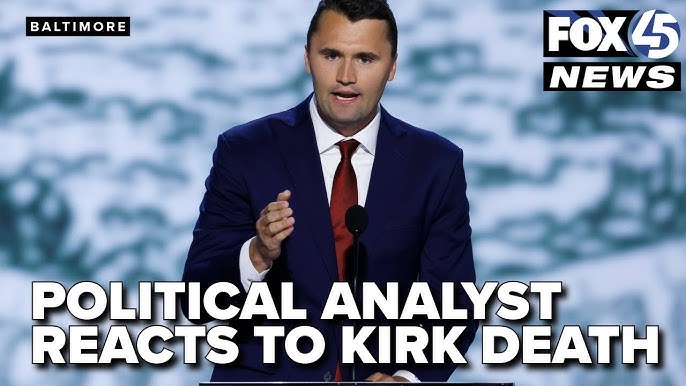Charlie Kirk’s Death: Political Exploitation or Genuine Tribute?
In a recent development, U.S. Vice President JD Vance and White House Deputy Chief of Staff Stephen Miller have made guest appearances on the podcast formerly hosted by well-known conservative commentator, Charlie Kirk, who was tragically killed. There was notable criticism from prominent conservative pundit Tucker Carlson directed towards Israeli Prime Minister Benjamin Netenyahu and some additional Israeli government figures. He suggested that these figures have allegedly manipulated the unfortunate demise of Kirk for personal political leverage.
Charlie Kirk was tragically murdered during his address at an event held in Utah Valley University the previous week, leading to a tsunami of outrage and grieving messages worldwide. High-ranking Israeli officials were among those who expressed their condolences, attracting international attention.
Itamar Ben-Gvir, who holds the position of Minister of National Security in Israel, was vocal about his gratitude toward Kirk for his support to Israel. In a public post, Ben-Gvir concurrently attributed partial responsibility for Kirk’s murder to what he construes as ‘global left and radical Islam’ alliance. Benjamin Netanyahu, the Israeli Prime Minister, also shared his thoughts on the internet, honoring Kirk and claiming that he was a ‘committed and courageous ally of Israel.’
However, during an episode of the Charlie Kirk Show, Carlson took a critical stance against these remarks without directly naming Israel. He suggested that it is inappropriate for foreign leaders to espouse their causes and agendas while refering to the life and death of Kirk. He considered these remarks to be reprehensible.
“It is both unnecessary and unhelpful for individuals — specifically foreign leaders — to seize this moment to amplify their cause or agenda; this behavior is utterly despicable,” Carlson stated, immediately after addressing Kirk’s stance on U.S.’s assistance to Israel.
“Refrain from exploiting the situation; it only serves to alienate people. Such exploitation does not promote your cause; not to mention it is patently false,” continued Carlson, clearly agitated yet stoically composed.
JD Vance, reflecting on his past interactions with Kirk, shared an incident when Kirk had expressed concern over a call he received during the U.S. strike on Iran. Kirk articulated his worries to Vance about the possibility of the strike acting as a catalyst for regime change efforts, potentially thrusting the U.S. into an extended and financially burdensome conflict. This event echoed the predicament resulting from the U.S. invasion of Iraq.
Drawing upon the U.S. incursion on Iran, Carlson intimated his concern for Kirk given the immense demands imposed on him by financial benefactors backing his conservative group, Turning Point USA.
“The situation did unsettle me,” admitted Carlson. “The donors contributing to Turning Point, were extremely demanding of him, to the point where I could sense the intensity of it. I had been regularly communicating with him in recent months, and I had a sense of the colossal burden he was shouldering. In spite of the pressure, he remained steadfast.”
The circumstances surrounding Kirk’s murder have led to fervent discussions about political manipulation and inappropriate reactions in the face of tragedy. Carlson’s comments exemplify critical views regarding the use of such unfortunate incidents for political agenda progression, particularly by international figures.
Though Kirk’s untimely demise is undoubtedly a significant loss for conservative circles, and his death has triggered a realm of reactions, the situation has also underscored the delicate, potentially controversial interactions between domestic incidents and international politics.
Response to a tragedy can often reveal more about the character of those responding than the incident itself. The actions of political figures in the wake of Kirk’s death serve as an illustrative case in point, revealing both cultural and personal attitudes about the role of politics in the public mourning of well-known figures.
Kirk’s death, in resulting reactions, has brought to the forefront divisions and intersections amongst various conservative views. His commitment to his cause, as well as the stand of his comrades and critics serve as stark reminders of the dynamic and often conflict-ridden dimensions of the political landscape.
Tucker’s pointed critique of Israel’s high-ranking officials lays bare the ever-present global dimension of politics – where expressions of condolence, and their political interpretations, can reverberate beyond national boundaries and stir debates about public figures’ life and legacy.
This recent round of debates in the wake of Kirk’s death continues to emphasize the tangled relationship between politics and ideology, domestic incidents and international responses. It serves as a potent reminder that in the complex realm of politics, an event can swiftly transform into a wide-ranging and starkly polarized communal discourse.

